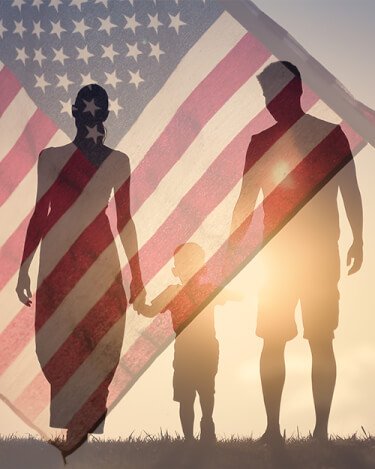
Waivers & Pardons - California Immigration Lawyer
Welcome to Cabrera & Hart Law, where our primary mission is to provide compassionate and effective legal assistance for those navigating the complex terrain of Waivers & Pardons.

Navigating Waivers and Pardons with a Trusted California Immigration Lawyer
Welcome to Cabrera & Hart Law, where your path to immigration success is our top priority. Our firm specializes in navigating the intricate labyrinth of waivers and pardons, a critical component of immigration law. We understand that dealing with immigration matters can be daunting and complex. That’s why we’re here to provide guidance, clarity, and expert assistance every step of the way.
At the heart of our operations is Kristen Hart, an award-winning lawyer renowned throughout Southern California for her expertise in immigration law. With her leadership, our team is committed to providing tailored legal solutions designed to meet your unique needs. Whether you’re dealing with issues related to waivers or seeking pardons, we’re here to help you overcome these hurdles and move closer to achieving your immigration goals.
Trust us to guide you through the process with compassion, dedication, and a deep understanding of the law. At Cabrera & Hart Law, we believe in turning complexities into opportunities for a brighter future.
At Cabrera & Hart Law, we understand that each immigration case is unique and personal. That’s why we approach each case with a deep sense of commitment and dedication, offering personalized solutions tailored to your specific needs. Here’s why you should choose us:



I’m here to help you succeed
You're only 3 steps away from starting your journey to U.S. Citizenship
The application process for both immigration waivers and pardons can be intricate and time-consuming. Here’s a general overview of what you can expect:
Step 1 Schedule Consultation
Call us to schedule your attorney consultation, via video call or phone.
Step 2 Case Review
Attorney will analyze your case and create an individualized case plan that best meets your needs
Step 3 Strategy Development
Based on the case evaluation, we formulate a tailored legal strategy that aligns with your specific circumstances and immigration goals.
Step 4 Identify the Correct Form
Depending on your circumstances, you may need to file Form I-601, Form I-601A, or another type of waiver application.
Step 5 Prepare Your Application
This involves gathering documentation to support your claims, such as proof of relationship to a U.S. citizen or permanent resident, or evidence of extreme hardship.
Step 6 Submit Your Application
Once your application is complete, it must be submitted to U.S. Citizenship and Immigration Services (USCIS) along with the appropriate filing fee.
Step 7 Wait for a Decision
USCIS will review your application and make a decision. The length of this process can vary widely.
Step 1 Schedule Consultation
Call us to schedule your attorney consultation, via video call or phone.
Step 2 Case Review
Attorney will analyze your case and create an individualized case plan that best meets your needs
Step 3 Strategy Development
Based on the case evaluation, we formulate a tailored legal strategy that aligns with your specific circumstances and immigration goals.
Step 4 Determine Eligibility
Before applying for a pardon, you must determine if you are eligible. This typically involves confirming that you've completed your sentence and that enough time has passed since then.
Step 5 Prepare Your Application
A pardon application generally requires a detailed account of the crime, information about your life since the conviction, and reasons why you're seeking a pardon.
Step 6 Submit Your Application
Pardon applications are typically submitted to the governor's office or to a state pardon board, depending on the state where the conviction occurred.
Step 7 Wait for a Decision
The reviewing authority will consider your application and make a decision. This can take several months to years.
It’s important to understand that this is a simplified overview of the process. Each case is unique and may involve additional steps and requirements. At Cabrera & Hart Law, we guide our clients through each step of this intricate process. Our goal is to ensure you understand what’s happening at each stage and to provide you with the best possible representation. With Kristen Hart leading our team, you can trust that your case will be handled with the utmost care and professionalism.
In the realm of U.S. immigration law, waivers are a critical lifeline for individuals who have been deemed “inadmissible” to the country due to certain violations. These can range from unlawful presence and misrepresentation, to specific health conditions, or criminal convictions. A waiver essentially serves as a ‘legal forgiveness’ granted by the U.S. government, allowing individuals to proceed with their immigration journey despite the hurdles they’ve encountered.
There are various types of waivers, each designed to address different circumstances. For example, Form I-601, also known as the Application for Waiver of Grounds of Inadmissibility, is often used by individuals who are outside the U.S. and seeking admission. On the other hand, Form I-601A, or the Application for Provisional Unlawful Presence Waiver, is for those who are currently in the U.S. and are immediate relatives of U.S. citizens or permanent residents. There’s also Form I-212, or the Application for Permission to Reapply for Admission into the United States After Deportation or Removal, which is used by individuals who were previously deported or removed from the U.S.
There are various types of waivers, each designed to address different circumstances. For example, Form I-601, also known as the Application for Waiver of Grounds of Inadmissibility, is often used by individuals who are outside the U.S. and seeking admission. On the other hand, Form I-601A, or the Application for Provisional Unlawful Presence Waiver, is for those who are currently in the U.S. and are immediate relatives of U.S. citizens or permanent residents. There’s also Form I-212, or the Application for Permission to Reapply for Admission into the United States After Deportation or Removal, which is used by individuals who were previously deported or removed from the U.S.
Eligibility Criteria for Waivers
For waivers, eligibility generally revolves around demonstrating that a U.S. citizen or lawful permanent resident family member would face “extreme hardship” if you were denied admission to the country. However, the definition of ‘extreme hardship’ can be subjective and depends heavily on the specifics of your case.
Pardons play a unique and important role in immigration law. Unlike waivers, which are essentially legal ‘forgiveness’ for specific violations, pardons are a form of clemency granted by the government to individuals who have been convicted of a crime. Pardons can erase or reduce the penalties associated with a conviction, including those that impact an individual’s immigration status.
In the context of immigration, a pardon can potentially remove the grounds for deportation or inadmissibility. For example, if you’re a non-citizen with a criminal conviction that could lead to deportation, a pardon might prevent this from happening. However, it’s crucial to note that not all pardons will affect immigration status, and the impact of a pardon can vary based on specific circumstances and the nature of the crime.
Navigating the complexities of pardons requires expert knowledge and experience, and that’s where Cabrera & Hart Law comes in. Led by Kristen Hart, an award-winning lawyer in southern California, our team is dedicated to providing you with comprehensive guidance and robust representation. We understand the profound impact a pardon can have on your life and immigration journey, and we’re committed to helping you explore this potential avenue to secure your future in the U.S.
Eligibility Criteria for Pardons
For pardons, eligibility typically requires that you’ve completed your sentence for the crime you were convicted of. In some cases, a certain period must have passed since you finished your sentence before you can apply for a pardon. The nature of the crime, your behavior since the conviction, and the impact of the pardon on your immigration status are all factors that are considered.
Remember, when facing immigration challenges, the attorney you choose can make all the difference. With Cabrera & Hart, APC, you’re not just getting a lawyer; you’re gaining a dedicated partner in your legal battle.
Award-Winning Service
Personalized Approach
Dedicated Attorneys
Representation in Court
Strong Client Relationships
Comprehensive Expertise:
Proven Results
Accessibility and Convenience
Paperwork and Documentation
Post-Decision Support
A waiver in immigration law is essentially a legal ‘forgiveness’ for specific violations, such as overstaying a visa or committing certain crimes. A pardon, on the other hand, is a form of clemency granted by the government to individuals convicted of a crime. Pardons can erase or reduce the penalties associated with a conviction, including those that could impact immigration status.
Eligibility for waivers often revolves around demonstrating that a U.S. citizen or lawful permanent resident family member would face “extreme hardship” if you were denied admission to the country. For pardons, eligibility typically requires that you’ve completed your sentence for the crime you were convicted of. Both processes have their complexities, and it’s recommended to consult with an immigration attorney for personalized advice.
The length of the process can vary widely depending on the specifics of your case, the current workload of the USCIS or pardon authority, and other factors. While some decisions may be made within a few months, others can take several years.
After you submit your application, it will be reviewed by the appropriate authorities. You may be asked for additional information or documentation. Eventually, you’ll receive a decision on your application.
While we cannot guarantee a specific outcome, we can assure you that we will use our extensive knowledge and experience to fight aggressively for your rights and work tirelessly to achieve the best possible result in your case.
We believe in maintaining open and transparent communication with our clients. We’ll provide regular updates on the progress of your case, any new developments, and what they mean for you.
If you receive an unfavorable decision, we are prepared to appeal and continue fighting for your rights. Our firm is committed to standing by our clients every step of the way.
You can schedule an initial consultation by calling our office or Schedule Online Now
. The initial consultation is an opportunity for us to understand your situation and discuss potential legal strategies.
Please note: This information is provided for general informational purposes only and should not be construed as legal advice. Each case is unique, and the law is subject to change. If you need advice on your specific situation, please contact Cabrera & Hart Law directly.
